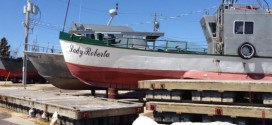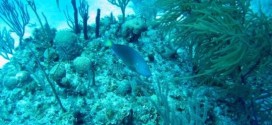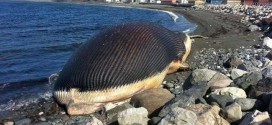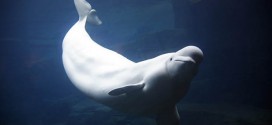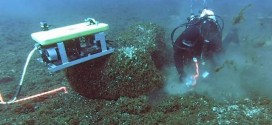Speculation has long existed about how the ancient Egyptians built the great pyramids – constructed from heavy stone blocks – ranging from rolling sleds over logs to aliens. In the dry desert, researchers had never before thought about the possibility of water being used to aid their assembly. But, now scientists may have finally figured out how the ancient Egyptians …
Read More »Science
Manitoba : Province plots attack on zebra mussels
The Manitoba government plans to close four major harbours on Lake Winnipeg in an attempt to eradicate invasive zebra mussels, and one scientist thinks someone has “fouled up.” The small filter-feeding mussels reproduce aggressively and were first spotted in Lake Winnipeg’s algae-ridden waters in October 2013. Department of Fisheries and Oceans has worked closely with the province since then in …
Read More »Viruses Hijack Deep-Sea Bacteria at Hydrothermal Vents, Study
More than a mile beneath the ocean’s surface, as dark clouds of mineral-rich water billow from seafloor hot springs called hydrothermal vents, unseen armies of viruses and bacteria wage war. Like pirates boarding a treasure-laden ship, the viruses infect bacterial cells to get the loot: tiny globules of elemental sulfur stored inside the bacterial cells.
Read More »Acidic Oceans Are Dissolving Tiny Snails’ Shells : NOAA
A NOAA-led research team discovered that increased ocean acidity is dissolving the shells of tiny marine snails off the West Coast, according to a new paper published in Proceedings of the Royal Society B. Researchers estimate that the percentage of these affected pteropods has doubled in the continental shelf waters since the pre-industrial era, and is expected to triple by …
Read More »Canada : Beached dead whale stinks up Newfoundland town
A whale that washed up on shore in Newfoundland is in danger of exploding, according to experts in Trout River, Canada. The town clerk, Emily Butler, told Canadian news service NTV that the blue whale carcass that washed up on the town’s boardwalk last week is decaying and filled with methane gas, which could lead the whale to explode.
Read More »Space: Astronomers Find Planet With 8-Hour Day
Scientists have for the first time measured the rotation of a planet in another solar system — a juvenile, gassy giant spinning at a breakneck 90,000 kilometers per hour, they reported on Wednesday. Orbiting a star about 63 light years from Earth, Beta Pictoris b is more than 16 times larger and 3,000 times more massive than our planet, but …
Read More »Vancouver : Mayor doesn’t want a referendum on whales in the Aquarium
The debate over keeping whales and dolphins in captivity at the Vancouver Aquarium could be put to a public vote this fall if one councillor gets her way, but it’s not clear if the Park Board would endorse the outcome.
Read More »Stop killer war machines: activist group says
Members of the Campaign to Stop Killer Robots have this week called on the government of Canada to support the creation of new international law to pre-emptive ban fully autonomous weapons or ‘killer robots.’ The call was made as part of an outreach effort in the Canadian capital of Ottawa by Mines Action Canada, a co-founder of the global Campaign …
Read More »New MIT building dedicated to nanotechnology
The new building, dubbed “MIT.nano” will be 200,000-square-feet and will and will contain “state-of-the-art cleanroom, imaging, and prototyping facilities,” an MIT news release reported. The lab will look into nanoscale technology to be used in fields such as “energy, health, life sciences, quantum sciences, electronics, and manufacturing,” the news release reported.
Read More »Researchers Find Old Hunting Zone Under Lake Huron
The story of people who hunted caribou in the Great Lakes region 9,000 years ago has been uncovered at the bottom of Lake Huron. Archeological remains of hunting blinds and other structures built by aboriginal caribou hunters were found underwater 56 kilometres from shore by sonar and dive teams led by University of Michigan Museum of Anthropology archeologist John O’Shea …
Read More »Record : Tiny Mite is World’s Fastest Land Animal
Move over Usain Bolt, there’s a new runner in town! A Southern California mite has set a new record as world’s fastest land animal and the little creature can run 20 times faster than a cheetah and the equivalent of a person running 2,092km per hour, scientists say.
Read More » Canada Journal – News of the World Articles and videos to bring you the biggest Canadian news stories from across the country every day
Canada Journal – News of the World Articles and videos to bring you the biggest Canadian news stories from across the country every day

